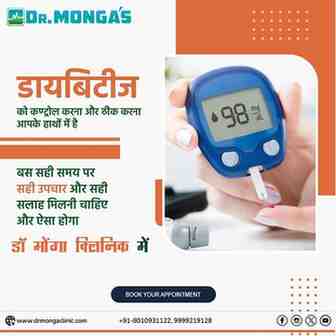It looks like you’ve sent me some styling code rather than the article itself. Could you paste the text of the news story you’d like rewritten? Once I have the content, I’ll transform it into a fresh, engaging piece for you.
Detox Dangers: What You Need to Know About Withdrawal
Sure thing! Could you please paste the article text that you’d like me to rewrite? Just drop the article content here, and I’ll take care of the rest.
Introduction
Why Detoxing is More Than Just a Quick Fix
When people talk about detox, they often picture a heroic plunge into clean waters. Think again. The reality is a jungle of bodily and mental twists that can turn a seemingly brave move into a perilous adventure.
What Makes Withdrawing Dangerous?
- Body’s Reactions: Chemicals flood your system, making the heart race and sleep vanish.
- Mind’s Maze: Anxiety soars, mood swings hit the max, and some folks face intense cravings that feel like a personal vendetta.
- Hidden Risks: Misjudging these dangers can lead to medical emergencies—yes, even death.
Feeling Trapped? Seek Help Strategically.
Coupling courage with the right support is like having a seasoned guide when you’re crossing a rough river. It’s the difference between crossing safely and getting stuck in the mud.
Why Rapid Detox Centers Matter
- Quick Exit Strategy: These centers aim to wash out substances fast, so you’re not stuck in raw withdrawal.
- Supervised Care: Medical teams monitor vital signs and intervene when things go off track.
- Beyond the Basics: After the initial cleanse, they hand you counseling tools and support plans.
- Long‑Term Success: You’re not just getting out of the maze; you’re learning to navigate it.
Choosing Your Sanctuary
Choosing a detox center isn’t a side quest—it’s the cornerstone of a sober life. Pick wisely to ensure you’re not just surviving, but thriving post‑detox.
Understanding Detox: More Than Just Abstinence
Detox: The Quick Reset, Not the Final Destination
Think detox is the grand finale? Think again. It’s more like pulling on a fresh shirt after a long day—revitalizing, but not the full wardrobe change.
What on Earth is a Detox?
A detox is your body’s way of giving the toxic stash a swift, surgical exit. Picture your organs as a clean-up crew, plucking out the nasties, and letting your system breathe a sigh of relief.
Why “Recovery” Is a Whole Different Ball Game
- Long‑haul healing. Recovery stretches over months, even years, as you stitch together emotional, psychological, and social threads.
- Complex wiring. It dives into the root causes—trauma, habits, relationships—that fuel addiction.
- Beyond the body. Detox eliminates the chemicals. Recovery rewires the mind.
Common Misstep: Treating Detox as the Finish Line
Just because the chemicals’re out doesn’t mean the battle’s over. A quick detox can leave the deeper deck open—like cutting the knot but still having the rope tangled. Without addressing those deeper vibes, you risk underestimating how far you’re yet to go.
Bottom Line: Detox Is the Gateway, Not the Destination
It’s the doorway that opens the doors to a longer journey of healing. Skip the “just right now” mindset and give yourself the time to build a whole new emotional base.
The Physiology of Withdrawal: What Happens to the Body
Withdrawal: The Body’s Unexpected Ghost Tour
When your body has been living on a steady chemical diet and suddenly the supply vanishes, things start to tangle.
What Happens Inside the Brain
The central nervous system, usually calm, starts a wild party of its own.
Common Symptoms (the low‑to‑high spectrum)
- Light flickers: Sudden sweating, tiny trembles that feel like a nervous cocktail.
- Intense waves: Seizures, heart stutters, or in dire moments, a sudden cardiac cease‑point.
Other “wild guests” stepping in
- Nausea: Stomach’s flailing like a roller coaster.
- Hallucinations: Reality gets a tinted makeover.
- Cravings: The emptiness inside walls screaming louder.
- Deep anxiety: A buzzing “I‑must‑balance‑myself” shout.
The body’s cry for equilibrium turns into a restless, sometimes chaotic, shoutout of its previous “balanced state.” The body claws for harmony, often through abrupt and unpredictable moves.
The Most Dangerous Substances for Withdrawal
When the Giver Has Gone, the Receiver Rages
Alcohol & Benzodiazepines
Picture an abrupt stop—think of a sudden rain in a dry desert. The body, which has been sipping it steadily, freaks out and throws in a Delirium Tremens cocktail. You’ll see brain‑shaking seizures, hallucinatory canaries, and a chilling possibility of fatality.
Bottom line: Call for medical help fast—you can’t just quit on your own.
Opioids: The Pain-Pirate’s Plunder
Step away from the opioid chute, and the body turns into a grim theater of unending aches. Jerky Jude wants his jolt of jazz tonight—except he’s got a stomach that’s doing the tango, muscles begging for a massage, and a clock that’s laughing at his insomnia. The mental mood swing is brutal; despair, increased cravings, and a desperate urge often bring people full circle back into their old habits.
Stimulants: Couch‑Puller’s Combat
The mental arena’s battlefield for cocaine and meth amps turns into a corrosive storm of depression, suicidal pensées, and a weight‑lifting type of exhaustion. Even hard‑worn warriors can find themselves grappling with bouts of crippling fatigue and raw sorrow.
In a nutshell: There’s no fight to win—just a hopeless hunger for relief.
The One‑Cause‑One‑Strategy Approach
Every drug has its own evil nature. That means you must craft a unique medical map tailored to the offending drug for a safe detox. Don’t go solo—big brain‑body help is crucial, unless you’re a professional with a superhero cape!
Common Myths and Misconceptions About Detox
Beware the “Cold Turkey” Myth
Think you can quit smoking or drinks just by deciding “no more” and hoping the world will magically adjust? That’s the classic cold‑turkey fallacy—an over‑optimistic belief that sheer willpower alone can handle the crash.
Why the “No‑Help” Route is a Recipe for Disaster
- Sudden withdrawal is not harmless. When you cut off a chemical that your body has become accustomed to (like alcohol or benzodiazepines), the body can react violently—imagine a rocket engine that’s suddenly been turned off.
- “First cure a body” is literally a miscalculation. Without medical supervision, you risk pushing the body into a catastrophic state, often called “severe withdrawal.”
- There’s no quick fix. It’s not an overnight project—expect a rocky path that needs careful navigation.
What’s Really Going on Inside?
When your body has been sipping a drug regularly, its brain parts become “tolerated” to that chemical. Remove it all at once and the brain feels like it’s lost its weight‑lifting routine—upset, malfunctioning, and sometimes screaming in ways you didn’t anticipate.
Comforting the Cut‑off but Muscle‑Sure
Some people think the solution is to “flush it out” with a home detox kit or natural cure. Reality check! These kits usually make grand claims, yet lack the proper science to back them up. They can foster a false sense of security while you’ll still be left dangling in a hazard zone.
Bottom Line: Don’t DIY the Cut‑off
Real handle starts with professional guidance. A health provider can monitor your symptoms, facilitate the correct tapering schedule, and keep you safe far from the nasty surprises you might otherwise stir up.
Medical Supervision: A Non-Negotiable Necessity
When Detox Goes Straight to the Doctor’s Clinic
It’s tempting to think “I can just cut it out myself.” In reality, a clean break from opioids or alcohol is a full‑blown medical drama. Doctors keep an eye on vital signs, toss in meds that ease the pain, and swoop in if the situation turns ugly. That supervision can be the line between getting back on your feet or crashing.
Medication‑Assisted Treatment: The Human‑Friendly Route
- Opioid Sober‑Downs – methadone and buprenorphine are the mainstream MVPs keeping cravings at bay.
- Alcohol Relief – Tapering with benzodiazepines offers a less dramatic withdrawal storm.
- Why It Works – These drugs give you a pace‑controlled, humane exit strategy from the chaos of detox.
Thoughtfulness in a No‑Nonsense Way
A lone detox attempt? Think of it as skipping the safety net at a high‑wire act. The risks are high, and you’ll likely miss the moment that saves you. Let the professionals handle it, and you’ll climb back to solid ground with less pain and a bigger grin.
Psychological Perils: The Mental Side of Withdrawal
Getting Unstuck From the Addiction Undertow
When you hit the bottom of a drug slide, it’s not just your body that’s feeling the pain. Your mind starts doing its own wild dance: mood swings, panic attacks, deep sadness, and irritation can surface like unexpected guests at a party. Even more alarming, the urge to self‑harm can pop up with alarming frequency during this turbulent time.
Post‑Acute Withdrawal Syndrome (PAWS) – The Lingering Nightmare
- Long‑lasting emotional chaos that can drag on for weeks or even months.
- Cognitive fog that makes it hard to focus or remember things.
- Sudden cravings that feel like unwanted nudges from your past.
- Without steady psychological support, PAWS can throw a wrench into any early recovery gains.
A Quick‑Fix Route That Requires More Than Just Speed
For anyone craving a faster way out of addiction, modern medical programs—think rapid drug detox near me—offer a breath‑taking option. These methods use sedation and targeted meds to flush toxins fast. They’re a lifeline for people who’ve battled long‑term addiction or hit multiple relapse loops.
But remember: a speedy physical detox is just the first chapter. You still need ongoing therapy, community backing, and professional guidance to avoid backsliding. Consult seasoned experts before you jump on the board and keep in mind that the goal is lasting recovery, not just a quick cleanse.
Conclusion
Detox: A Dangerous Journey Worth the Risk
When you think about quitting a substance, it’s tempting to imagine a quick, painless “switch‑off” button. But the truth is, detox is a wild ride that can throw you a curveball—sometimes a lethal one. If you’re serious about recovery, treating detox as a routine side‑gig is a huge mistake. Here’s why getting it right matters, and why the educated hand of a medical professional is the safest seat in the cabin.
Why Detox Should Be More Than a “Wish‑upon‑a‑star”
- It’s a Metabolic Rollercoaster: The body’s chemistry can spiral if you don’t have a guide on board.
- It Demands Continuous Oversight: Mid‑night spikes in electrolytes or heart irregularities aren’t just “bad partying” – they’re real medical emergencies.
- Misjudging the Process is a One‑Way Ticket to Catastrophe: Unplanned withdrawals can turn a moment of discomfort into a full‑blown crisis.
Professional Detox: Not a Luxury, But a Lifeline
Think of a medically supported detox like a seasoned coach for a marathon you didn’t sign up for. The coach:
- Monitors your vitals round‑the‑clock.
- Adjusts medication doses on the fly.
- Provides a safety net that turns a potential disaster into a manageable challenge.
When you leave it to “DIY” or a friend’s advice, you’re essentially riding a stormy sea without a life jacket—possible, but hardly advisable.
Bottom Line: It Should Be a Respectful, Supervised Process
Detox isn’t a casual checkbox on your mental health to‑do list. It’s the first, hardest chapter of recovery, and the stakes are real. If you’re serious about turning the corner, secure a medically supervised detox. It’s not an optional extra—it’s the foundation that ensures survival, stability, and a solid footing for the long road ahead.




